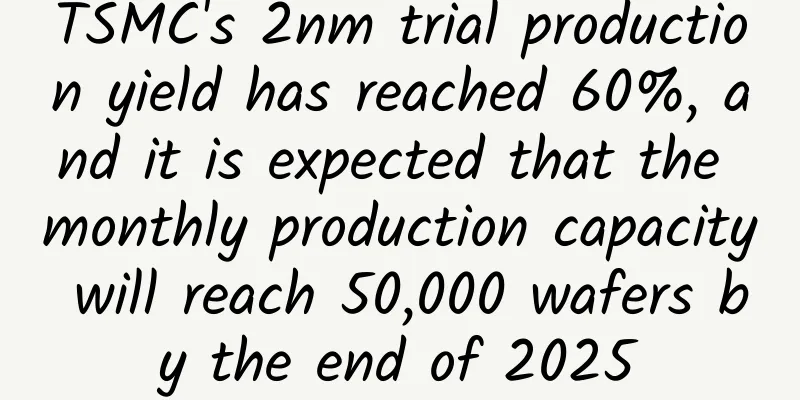TSMC's 2nm trial production yield has reached 60%, and it is expected that the monthly production capacity will reach 50,000 wafers by the end of 2025

|
TSMC's plan to quickly deliver the first 2nm wafers to lucrative customers remains uncertain, and it all depends on how quickly the semiconductor giant can increase production capacity. According to the last report mentioning this specific number, the company has reached 60% of trial production on the cutting-edge lithography technology, which is a major milestone for the foundry and also expands its lead over the competition. Now, one analyst believes that the pilot phase has made some progress toward full production since those production numbers were mentioned a few weeks ago. Although the exact output was not disclosed, analysts said that the data that TSMC's 2nm trial production yield reached 60% was reported three months ago. The first customer of TSMC's 2nm batch is likely to be Apple, which is why Tianfeng International Securities analyst Ming-Chi Kuo mentioned in his post on X that Apple's iPhone 18 series, scheduled to be launched in the second half of 2026, will adopt a chipset upgrade using the above-mentioned lithography technology. Previously, GF Securities analyst Jeff Pu predicted that the same chip (chronologically called A20) would be mass-produced on TSMC's 3nm "N3P" node, and he revised his statement, and now his views are consistent with Kuo's. It was previously reported that not all iPhone 18 models will use Apple's 2nm A-series SoC due to cost reasons, but it can be assumed that this prediction was made based on TSMC's previous progress in cutting-edge technology. Since the yield rate of 2nm trial production reached 60% in about three months, Kuo has reason to believe that the semiconductor manufacturer has improved these yields to a level sufficient to achieve production levels. It was revealed that at the current rate, TSMC will be able to produce 50,000 2nm wafers by the end of 2025. With the Baoshan and Kaohsiung plants fully operational, production could reach 80,000 wafers, which is enough to meet the needs of the 2nm process. TSMC has also explored ways to reduce the cost per wafer, which could encourage companies other than Apple to start placing orders. The company is said to be launching a "CyberShuttle" service in April, allowing customers to evaluate their chips on the same test wafer and reduce costs. It is hoped that this move will encourage more customers to join the 2nm trend and strengthen TSMC's control over the foundry business. |
<<: IDC: Philippine smartphone market to grow 6.1% year-on-year in 2024
Recommend
Normal value of pregnancy-associated protein a
Protein A is the most important trace element in ...
What are the reasons for poor egg development?
If a female friend has problems with poor egg dev...
Will a woman's vagina become loose after a natural birth?
The maintenance of every couple's relationshi...
Pharmacist’s Antidote | When angina attacks, this is how you should use nitroglycerin tablets!
Winter is the peak season for coronary heart dise...
What are the disadvantages of drinking red wine for women?
In our daily life, many people have the habit of ...
TCM treatment of kidney yang deficiency in women
Kidney yang deficiency in women is also a common ...
The difference between fertile period and ovulation period
For women, they should learn more about some know...
When should painless abortion be performed?
Today's society is so open that the contact b...
Can fungal vaginitis be cured?
Vaginal candidiasis refers to a vaginal infection...
If you can’t sleep, don’t force yourself to sleep. Try these methods!
About one-third of our lives are spent sleeping, ...
Dietary conditioning methods for older pregnant women
There are many methods of dietary regulation for ...
Can an 8-month pregnant woman cut her hair?
Today's expectant mothers are extremely conce...
Strong echo area between the anterior uterine wall and endometrium
When a strong echo area appears between the anter...
Aging starts from the feet
Since ancient times, there has been a saying in t...
Is frequent urination a symptom of early pregnancy?
If a woman's menstruation does not come at th...









